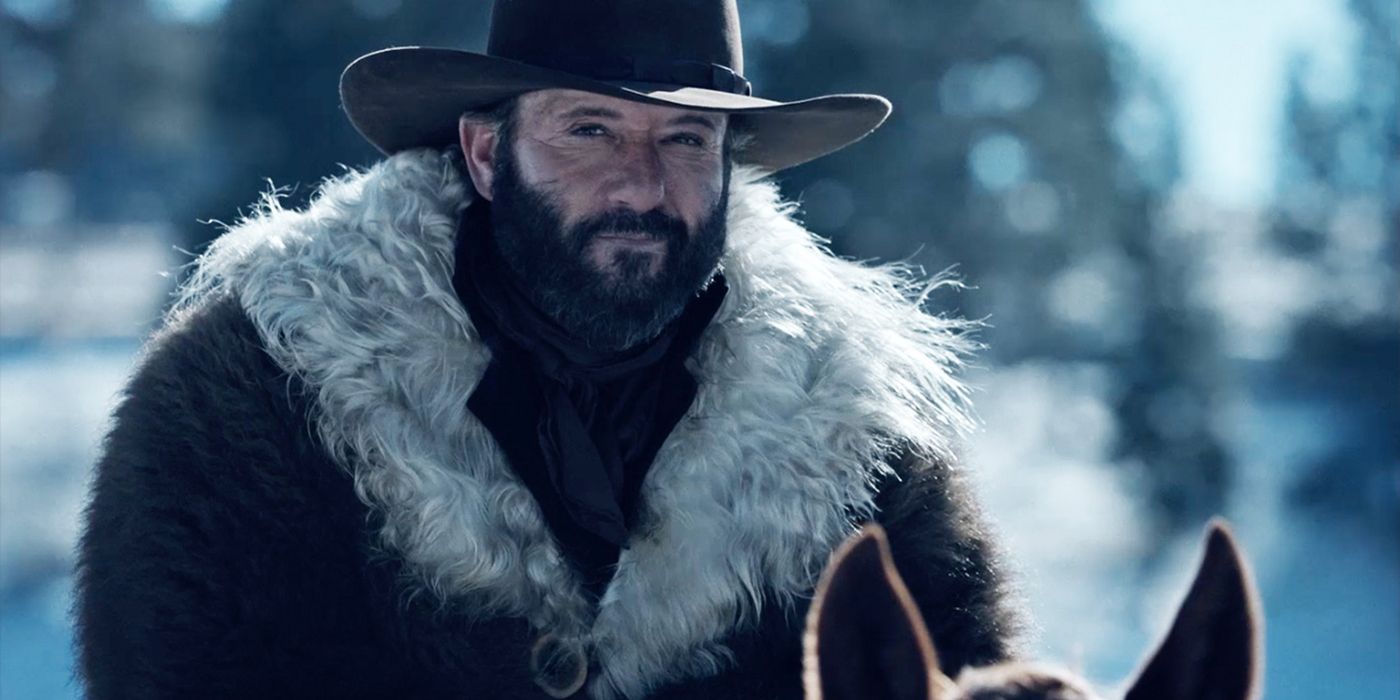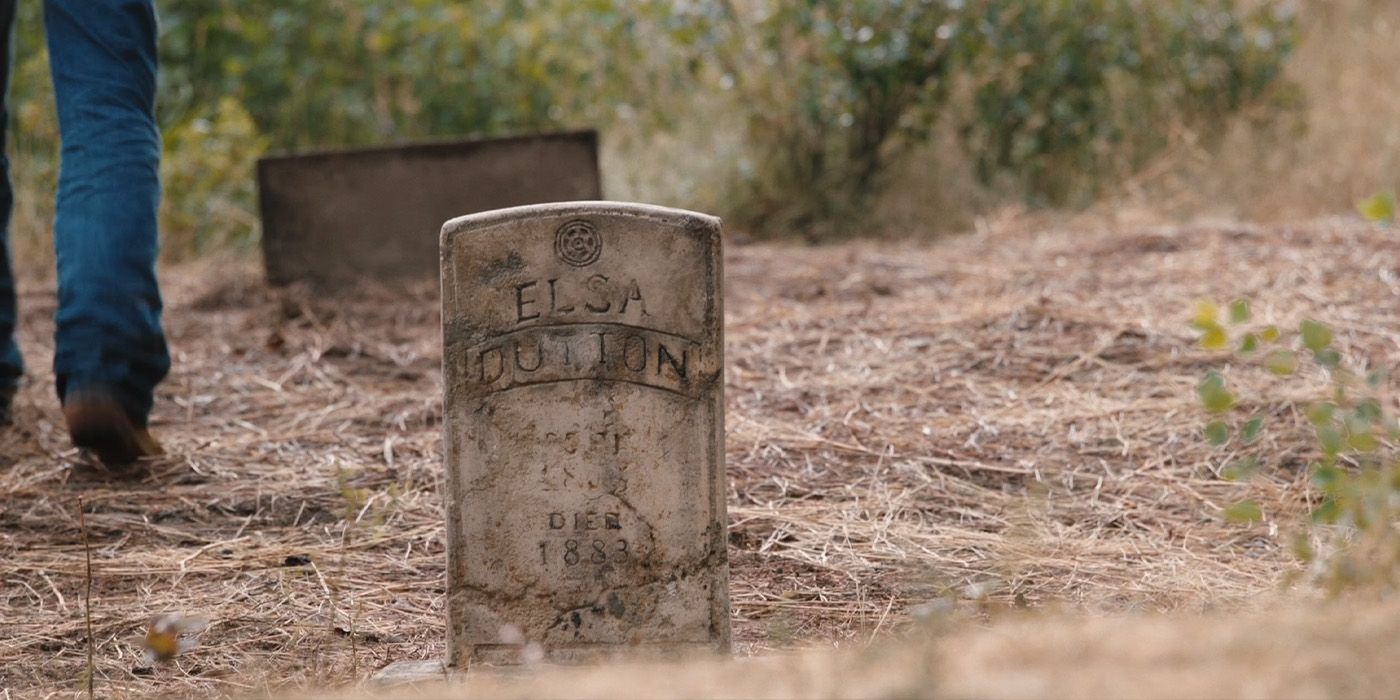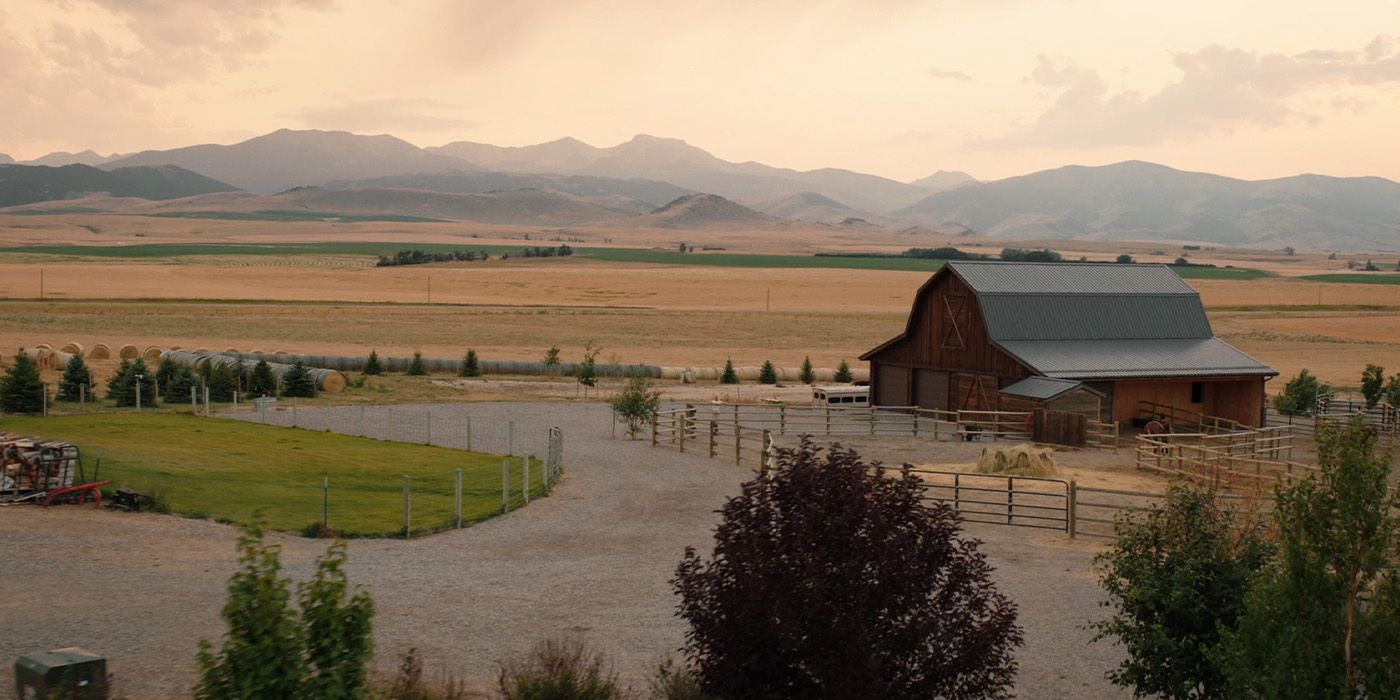What Is the Dutton Prophecy in ‘1883’?

The first time we see Elsa Dutton in 1883 is a flash forward to the moment she was shot, with the rest of the series explaining how we got there. Although her father James (Tim McGraw) leads the family west, Elsa remains the heart and soul of the series from the start, embodying the spirit of the land and creating her own identity, one uniquely expressed through voiceover narration. All of this makes her inevitable demise so tragic, as Elsa slowly succumbs to her arrow wound over the course of a week, and her father promises to settle the family at the burial place of her choosing.
The first time we see Elsa Dutton in 1883 is a flash forward to the moment she was shot, with the rest of the series explaining how we got there. Although her father James (Tim McGraw) leads the family west, Elsa remains the heart and soul of the series from the start, embodying the spirit of the land and creating her own identity, one uniquely expressed through voiceover narration. All of this makes her inevitable demise so tragic, as Elsa slowly succumbs to her arrow wound over the course of a week, and her father promises to settle the family at the burial place of her choosing.
After guidance from the local tribes, the pair reach a small valley known only as Paradise, and the people there agree to let them stay out of respect for Elsa, but with conditions. The Crow leader tells James that their people will return to reclaim the land in seven generations, roughly 140 years later. Love has always been a guiding force on the ranch in all its forms, and James agrees to it without a second thought if that means honoring Elsa, whose posthumous narration continues into 1923 like a ghost. It’s a chilling reminder of not only how important she was to the family, but also just how much the Duttons sacrificed to create their new home.

Given that Elsa died over a full century before Yellowstone begins, one can forgive the characters in the show for barely mentioning her, and she would hardly be the first Dutton ancestor to be slowly forgotten with time. While they may not remember Elsa’s name, the family’s history remains important to the Duttons as a source of pride and heritage, one they’re not willing to give up so easily. Despite all their financial troubles in the series, the Duttons remain entrenched in the political culture of Montana after so many generations, but finally agree to what Chairman Thomas Rainwater (Gil Birmingham) calls “the worst deal since my people first sold Manhattan,” so long as the land never becomes developed.
The Loss of ‘Yellowstone’s Dutton Ranch Is Both Tragic and Liberating

When addressing the closure given to the Dutton family, it’s impossible to do so without mentioning the departure of its lead character. The biggest obstacle to taking back the ranch was always John Dutton himself, and it made his demise inevitable even before Kevin Costner left the series. Consequently, the death of the Dutton patriarch creates an opening for the other surviving family members, allowing Kayce (Luke Grimes) to kill two birds with one stone by outwitting his brother and denying him the land while freeing himself from the burden of inheritance. Just for good measure, Jamie (Wes Bentley) meets his end at the hands of his sister, Beth (Kelly Reilly), finally ending their turbulent relationship once and for all. There is a clear sense of loss with the transfer of the ranch, both familial and historical, but it also provides Beth and Kayce with the sense of individual freedom present in many Westerns.
Yellowstone is available for streaming exclusively on Peacock in the U.S.
